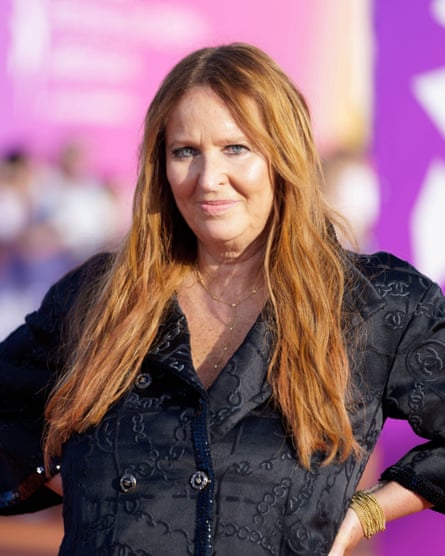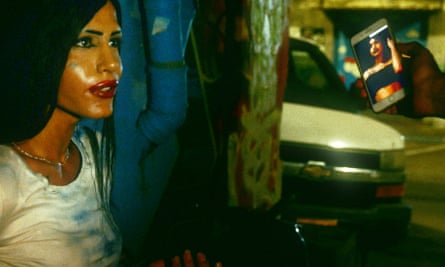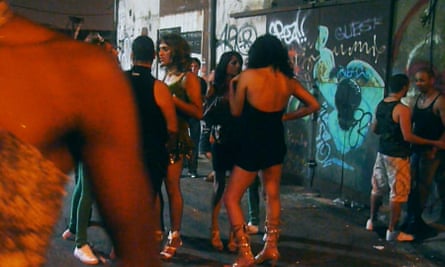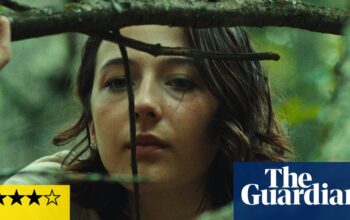The Belle from Gaza premieres at the Cannes film festival on Friday – an achievement made the more remarkable as there was a point last year when it looked as if it would never be seen.

After Hamas’s attack on 7 October and the Israeli military offensive that followed, its French director, Yolande Zauberman, considered shelving her finished project. “I thought maybe we should not show this movie for the moment, because what’s happening is so big, so huge”, says Zauberman.
Her film was not meant to be “a demonstration of anything”, but its title and synopsis alone – the story of transsexual women moving from Palestine to Tel Aviv to live out their new identities – risked being read as a political statement on the current conflict.
In Israel, gay marriage can be registered but only if it is performed abroad, and male-to-female sex reassignment surgery is carried out in public hospitals, while in the Palestinian territories homosexuality remains a taboo.
Zauberman eventually decided to show the film after the positive reactions of both Arab and Jewish viewers at a test screening. Did she consider that her film could be politicised after its premiere at Cannes? “Of course, but it’s strange, because so far that is exactly what is not happening.”
A veteran film-maker of nine documentaries and features, Zauberman, 69, chanced on her subject during the making of her César award-winning M, about an Israeli man who was raped in an ultra-Orthodox Jewish community as a child and becomes attracted to transsexual women later in life. In Tel Aviv, some of these women could be found at night on Hatnufa Street, in the south of the city, offering sex for cash.
Meeting the women, Zauberman found that many of them were Arab, and picked up a story about one woman who was rumoured to have walked from the Gaza Strip to Tel Aviv, a journey of at least 45 miles.
The story captured her imagination: “Gaza at the time was already a jail for people,” she says. “For somebody to manage to escape that jail is already an achievement. And then to be or to become a trans woman?”

In the film, which documents Zauberman’s search over almost five years of filming, the titular figure remains elusive – a smartphone photo that provides the only point of reference turns out to depict a different person altogether – and other women move into the foreground instead.
“After a while I thought, maybe it’s better not to find her, because what would we do if we find the Belle from Gaza?”, Zauberman says. “Isn’t it going to be too dangerous for her?”
For some of the women, leaving behind the Palestinian territories did amount to a liberation. One of them, Danielle, describes being beaten and ordered to run towards a checkpoint on the West Bank, with the intention of making Israeli guards believe her to be a terrorist, and shoot her.
But the picture is nuanced. Even in Tel Aviv, some of the four women appear on edge when interviewed, eyeing the shadows entering their street to distinguish potential customers from potential attackers. “They are safe and not safe,” Zauberman says. Some have the requisite papers to live in Israel, others don’t. “Above all, they are really strong. And to live their life, you really have to be.”
While some of them are fearful of being sent back to their parents (“they will kill her for sure”), others have supportive family and loyal Muslim friends.
Religion plays a surprisingly large role, even in the more secular metropolis. One woman, Nathalie, begins to wear a hijab after her operation and starts to recite from the first chapter of the Qur’an. “Religion and family is very important for them. And during the process of the movie, they become more and more religious”.
The film opens with an interview with an older, Arab transsexual woman who recalls the intense affair she once had with an Orthodox rabbi. “What interests me is that these women know Israel so well – they know everything about it,” Zauberman says. “If one day there is a sort of peace, they could play a really a big role, because they know both sides very well.”

In the run-up to Cannes, there have been criticisms of the lack of Palestinian voices at the world’s largest film festival. There are no Palestinian film-makers in the official selection, and protests along the Croisette and its surroundings have been pre-emptively banned.
“This year we decided to host a festival without polemics,” festival chief Thierry Frémaux said on the opening night, perhaps mindful of the way the conflict in the Middle East ended up dominating the awards gala at the Berlin film festival earlier this year.
In The Belle of Gaza, which has minimal narration, the Palestinian women of Hatnufa Street are given the space to speak for themselves, but there’s an argument to be had that in Zauberman’s film Gaza remains an abstraction, a cipher for a state of imprisonment – and for the world’s largest film festival, a way to turn a blind eye on a conflict that may be complex, but is also costing real human lives.
It’s an argument the festival’s curators should engage with, rather than the directors behind its films. In her 1987 debut Classified People, Zauberman told the story of a mixed-race couple in apartheid South Africa. The lesson it taught her, she said, was that for film-makers politics have to be found in the personal. “The only place, the real place of resistance, is intimacy.”
Source: theguardian.com


